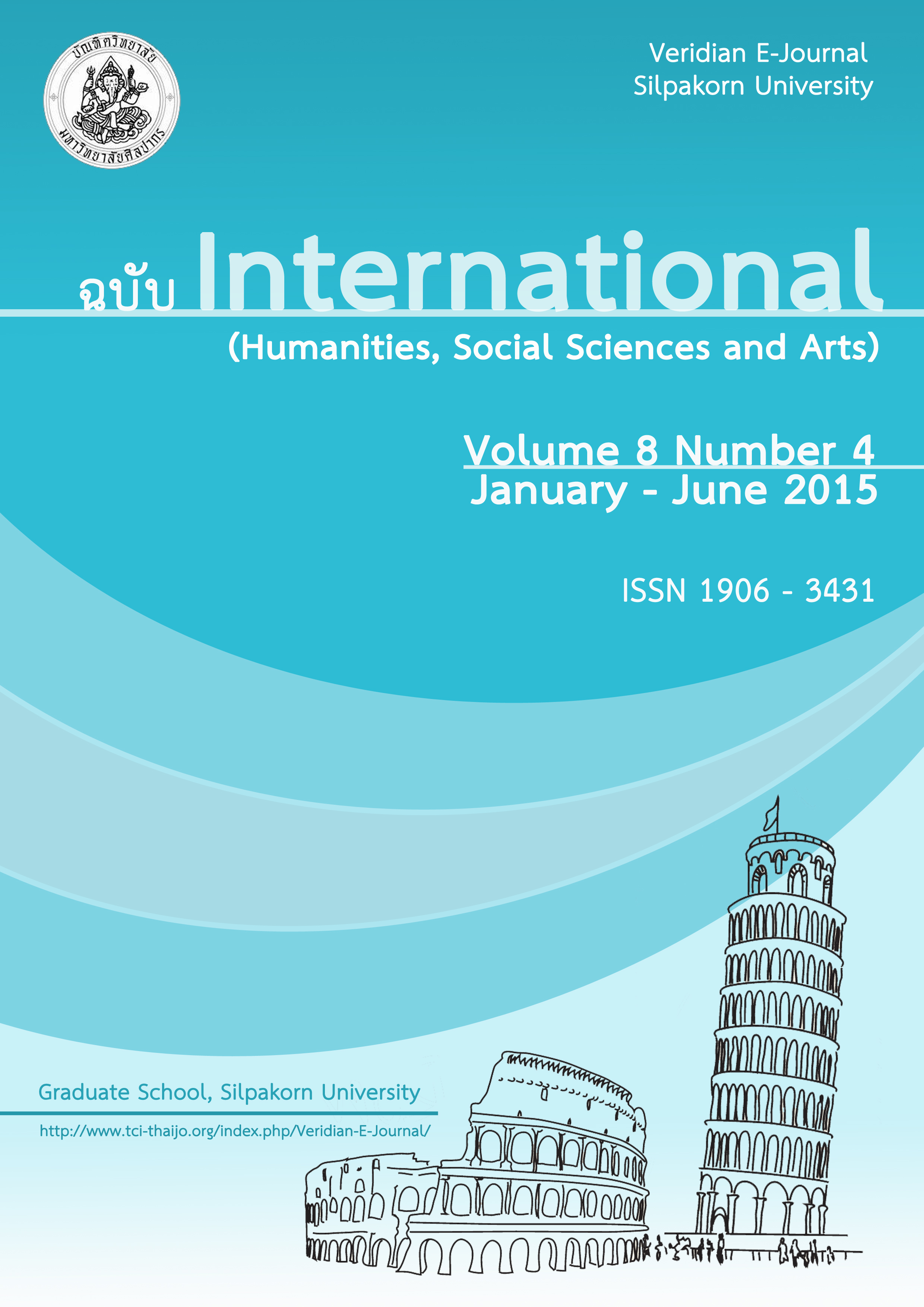Relationship between Emotional Intelligence Factors and Conflict Management of Leaders in Frozen Food Factories in Thailand
Main Article Content
บทคัดย่อ
Abstract
This study aims to investigate the relationship between emotional intelligence factors and conflict management of leaders in frozen food factories in Thailand. Statistical population includes all leaders and managers of frozen food factories in Thailand (n=400). Using Yamane’s formula (1976) and simple random sampling method, the sample size of 200 (including 107 male and 93 female) was achieved. To gather data, a researcher-made questionnaire was utilized for measuring emotional intelligence and interpersonal conflicts. To measure the validity of questionnaire, a test was conducted on a group of 30 target samples whose results confirmed the validity of it. Calculated alpha coefficient of this questionnaire was 0.70. The statistics used for data analysis and hypotheses testing included frequency, percentage, mean, standard deviation, and Simple correlation coefficient. The results indicated a significance and positive correlation between emotional intelligence factors including self-awareness, self-regulation, internal motivation, empathy, and social skills and interpersonal conflict management (p≤0.05).
Keywords: Emotional intelligence, Interpersonal conflict management, Leaders
บทคัดย่อ
การศึกษานี้มีวัตถุประสงค์เพื่อศึกษาความสัมพันธ์ระหว่างความฉลาดทางอารมณ์และการจัดการความขัดแย้งในโรงงานอาหารแช่แข็งในประเทศไทย กลุ่มประชากรที่ศึกษา คือ หัวหน้างาน และ ผู้จัดการในโรงงานอาหารแช่แข็งจำนวน 400 คน โดยใช้ Yamane’s formula (1976) และวิธีเลือก ตัวอย่างสุ่มแบบง่ายจะได้กลุ่มประชากรจำนวน 200 คน (ประกอบด้วยชาย 107 คน และหญิง 93 คน) ใน การศึกษาครั้งนี้ได้มีการทดสอบความเที่ยงตรงกับกลุ่มประชากรตัวอย่างจำนวน 30 ชุด โดยใช้แบบ สอบถามที่มีความน่าเชื่อถือที่ระดับ 0.70 ในการเก็บข้อมูลจากกลุ่มตัวอย่าง โดยสถิติที่ใช้ในการวิเคราะห์ และทดสอบสมมุติฐาน ได้แก่ ความถี่ ร้อยละ ค่าเฉลี่ย ค่าเบี่ยงเบนมาตรฐาน และSimple correlation coefficient จากการสำรวจและวิเคราะห์ข้อมูลจะแสดงถึงความสัมพันธ์ระหว่างความฉลาดทางอารมณ์และ การจัดการความขัดแย้งของหัวหน้างานในองค์กร ผลการศึกษาพบว่าปัจจัยด้านความฉลาดทางอารมณ์ การ รู้จักตน การกำกับตัวเอง แรงจูงใจ การเห็นอกเห็นใจ และทักษะทางสังคม มีความสัมพันธ์ต่อการจัดการ ความขัดแย้งของหัวหน้างานภายในองค์กรอย่างมีนัยสำคัญทางสถิติ (p≤0.05)
คำสำคัญ: ความฉลาดทางอารมณ์ การจัดการความขัดแย้ง หัวหน้างาน

